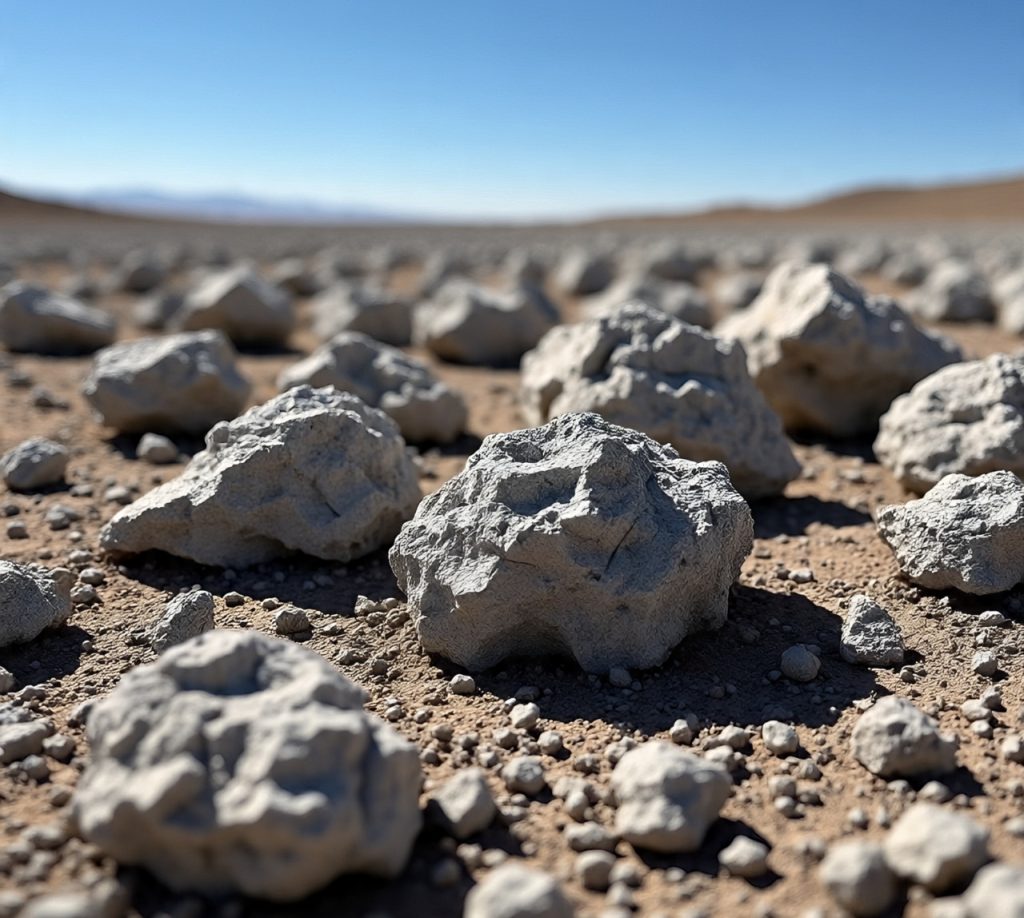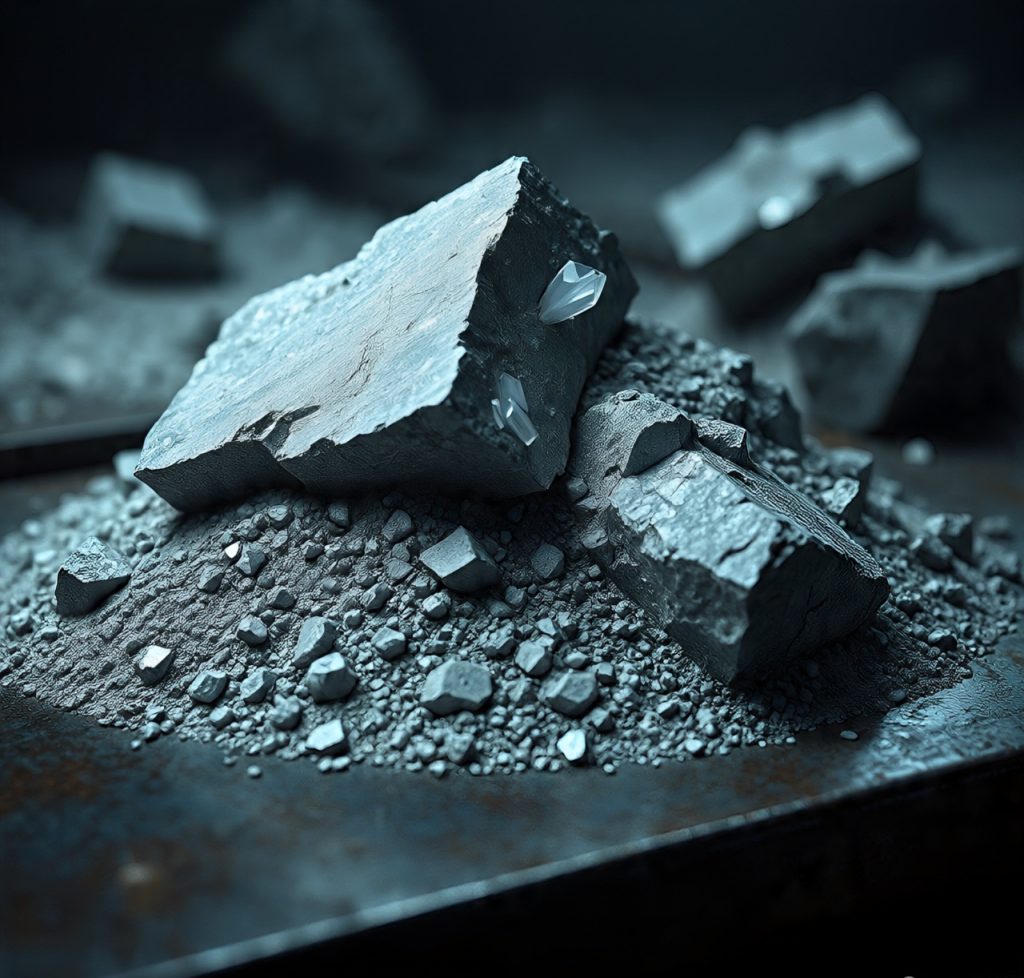What is Lithium?
Lithium is a soft, silvery-white alkali metal, the lightest of all solid elements, with high reactivity and excellent electrochemical potential. It does not occur freely in nature but is found in mineral ores such as spodumene, petalite, lepidolite, and amblygonite, as well as in brine deposits. Because of its unique properties—lightweight, high energy density, and ability to store charge—it has become one of the most critical minerals of the 21st century, powering the green energy transition.

Global Importance of Lithium
Lithium has been nicknamed “white gold” due to its pivotal role in the renewable energy revolution. Its demand has skyrocketed because of the rise of:
-
Electric vehicles (EVs) – Lithium-ion batteries are the heart of EVs, which are projected to dominate global transport.
-
Renewable energy storage systems – Large-scale lithium batteries store solar and wind energy for later use.
-
Consumer electronics – Mobile phones, laptops, tablets, and smart devices all rely on lithium-ion batteries.
-
Aerospace and defense – Lithium alloys are used in lightweight materials for aircraft and defense technology.
-
Healthcare – Lithium compounds are used in psychiatric treatments for bipolar disorder and depression.
According to the International Energy Agency (IEA), lithium demand is projected to increase by over 40 times by 2040 under clean energy transition scenarios.
Uses of Lithium
-
Battery Production (65–70% of demand)
-
Lithium-ion and lithium-polymer batteries.
-
Used in electric vehicles, laptops, smartphones, and renewable storage systems.
-
-
Glass and Ceramics (15–20%)
-
Lithium improves glass and ceramics resistance to thermal shock.
-
Used in cookware, glassware, and industrial ceramics.
-
-
Greases and Lubricants (5–7%)
-
Lithium stearate is a thickener in lubricating greases, providing stability and performance.
-
-
Pharmaceuticals
-
Lithium carbonate and citrate are used in medications to treat mental health conditions.
-
-
Metallurgy
-
Lithium is added to aluminum and magnesium alloys to make them lighter and stronger for aerospace.
-
-
Air Treatment & Purification
-
Lithium chloride and lithium bromide are used in air conditioning and industrial dehumidifiers.
-
Global Market Demand
-
The lithium market was valued at $37 billion in 2022 and is expected to surpass $90 billion by 2030.
-
The EV industry is the largest driver of demand, with car manufacturers like Tesla, BYD, Toyota, and Volkswagen competing for stable lithium supplies.
-
Top lithium producers include Australia, Chile, China, and Argentina—together known as the “Lithium Triangle.”
-
The UK market imports lithium for battery manufacturing, electronics, and renewable energy projects, making it a steady export destination.
Export Potential from Africa
Africa is emerging as a key supplier of lithium. Major deposits are found in Nigeria, Zimbabwe, Namibia, Democratic Republic of Congo, and Ghana.
-
Nigeria – Rich reserves in Nasarawa, Kogi, Kwara, and Ekiti States, attracting interest from global investors.
-
Zimbabwe – Home to Africa’s largest lithium mine (Bikita).
-
African lithium is attractive because it is high-grade and cheaper to mine compared to other regions.
Export Specifications
When exporting lithium ore or concentrates, international buyers typically request:
-
Lithium Content (Grade):
-
Spodumene concentrate: 5–6% Li₂O (Lithium Oxide).
-
Petalite concentrate: 3–4.5% Li₂O.
-
Lepidolite concentrate: 2–4% Li₂O.
-
-
Moisture Content:
-
Should be less than 1%.
-
-
Form of Export:
-
Raw ore (direct from mines).
-
Processed concentrate (preferred by international buyers).
-
Lithium chemicals (carbonate, hydroxide, chloride).
-
-
Packaging:
-
Bulk shipment in 50kg–1 ton jumbo bags, usually loaded into containers.
-
-
Testing & Certification:
-
SGS or equivalent international testing and quality certification.
-

HS Code for Lithium Export
-
HS Code 2805.19 – Alkali metals: Lithium.
-
HS Code 3824.99 – Lithium-ion battery materials/compounds.
-
HS Code 7503.00 – Lithium ores and concentrates.
Nigeria & UK Trade Opportunity
-
UK Imports: Lithium demand in the UK is expected to surge due to plans for EV gigafactories and renewable energy projects.
-
Nigeria’s Advantage: Untapped reserves, low labor cost, and government push to diversify exports.
-
Export Pathway: Nigerian exporters can partner with UK-based battery manufacturers, chemical companies, and electronics firms.
Challenges in Lithium Export
-
Price volatility – Global lithium prices can fluctuate due to EV demand cycles.
-
Regulatory framework – Many African governments are moving towards restricting raw ore export to encourage local processing.
-
High capital requirement – Lithium extraction and processing require advanced technology.
Conclusion
Lithium is a strategic mineral shaping the future of energy, transport, and technology. For Nigerian and African exporters, it represents a multi–billion–dollar opportunity—particularly with the UK and EU’s push towards carbon neutrality and electric mobility. However, success requires meeting global standards, securing reliable buyers, and investing in processing rather than just raw ore export.







